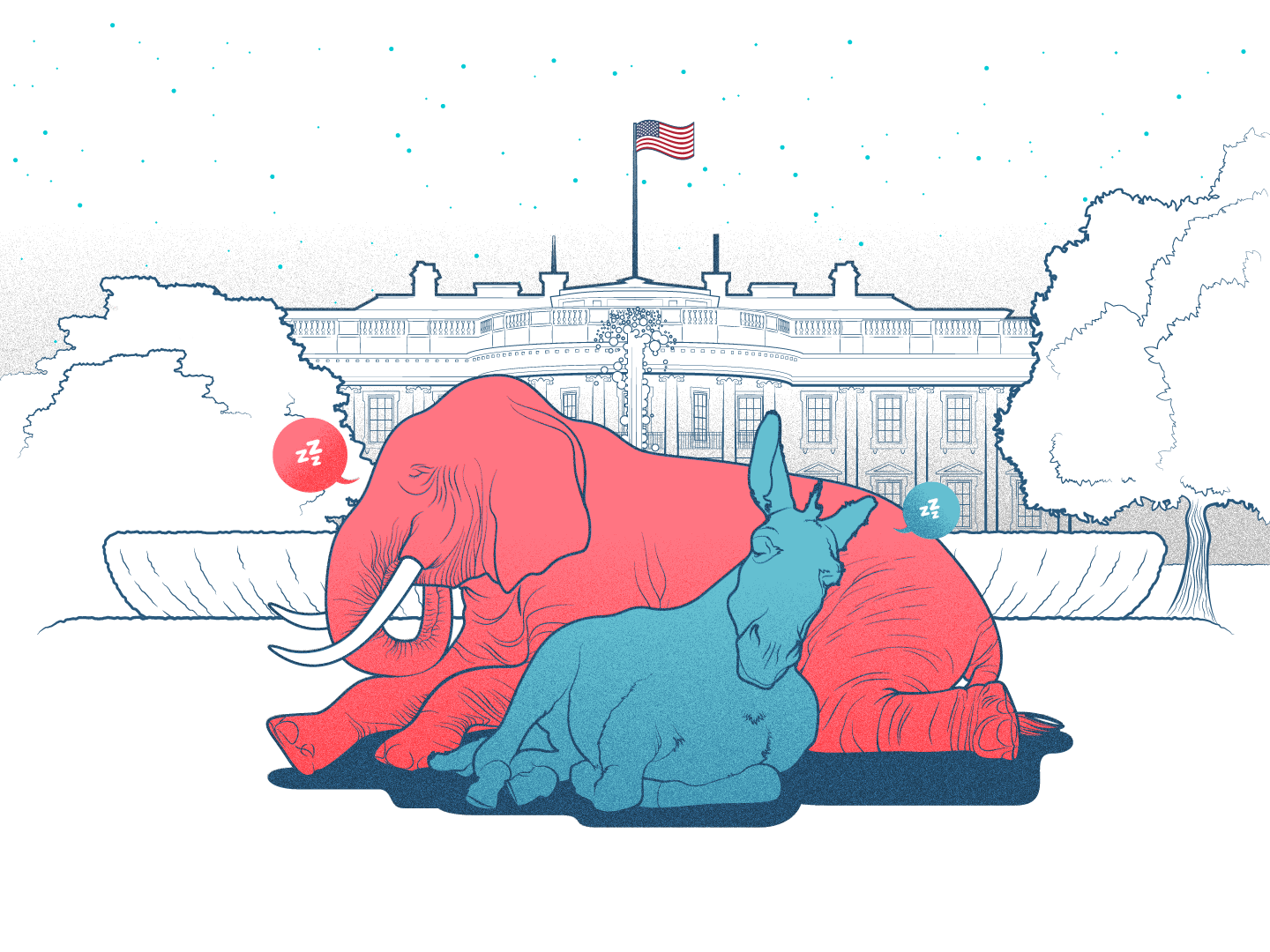
By any standard, 2020 has been a year of unprecedented challenges that culminated in a U.S. presidential election unlike any other. The election came amidst the global COVID-19 pandemic which prompted record mail-in and early voting, during a year that brought nationwide racial unrest, an economic downturn and an environment of extreme political divisiveness.
At Sleep Cycle, we wanted to understand how this year’s election affected America’s sleep. Of our users who said that the election impacted their sleep, 96% reported a negative impact. In tracking daily factors that influence sleep, our users also reported a drastic spike in stress on Election Day.
In this report you’ll get a snapshot of how election night disrupted sleep in America by looking at data by state, across age groups and providing a baseline comparison to an average night’s sleep.
Did the election impact your sleep?
Answered by 198,447 American users
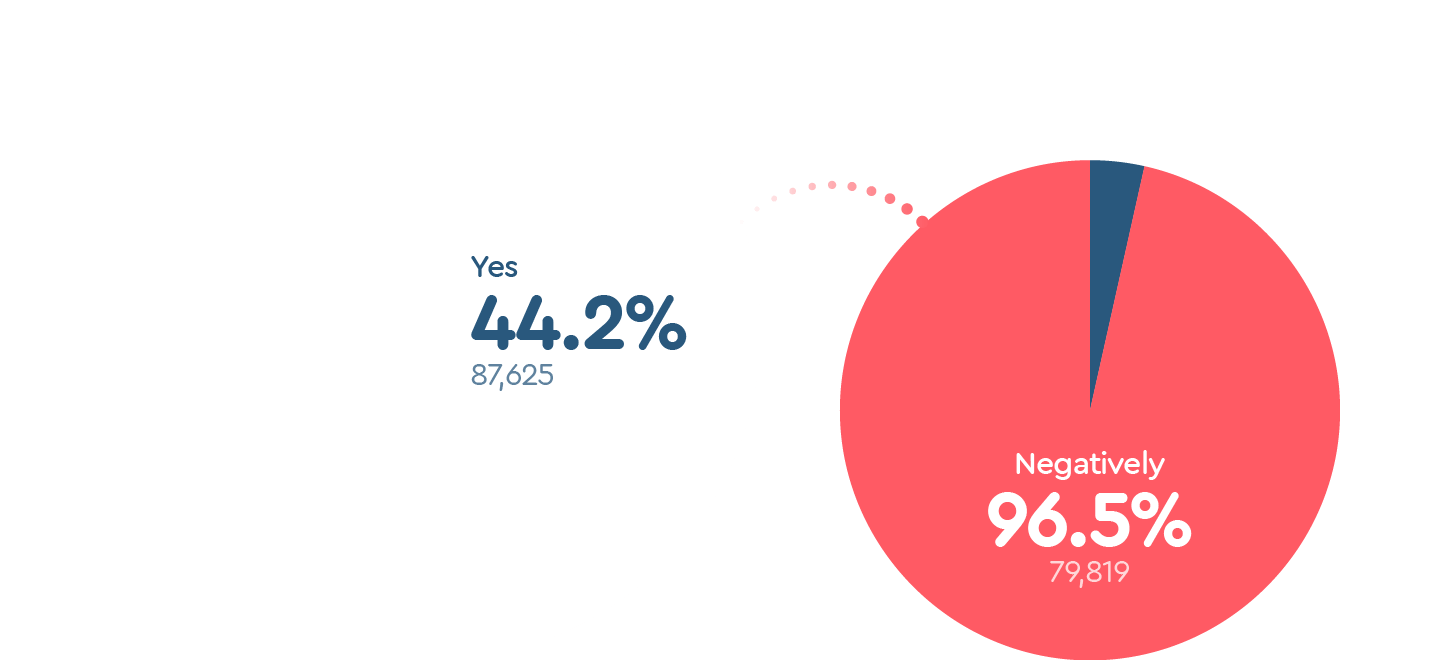
Election Day stress
Sleep health begins the moment we wake up. What we do, along with what we eat and drink, all contribute to how we sleep. In the Sleep Cycle app, users have the option to record Sleep Notes so they can track patterns in their daily routines that may impact their sleep health in both positive and negative ways.
On Election Day, the number of people who added “stressful day” to their Sleep Notes compared to the weeks prior rose significantly.
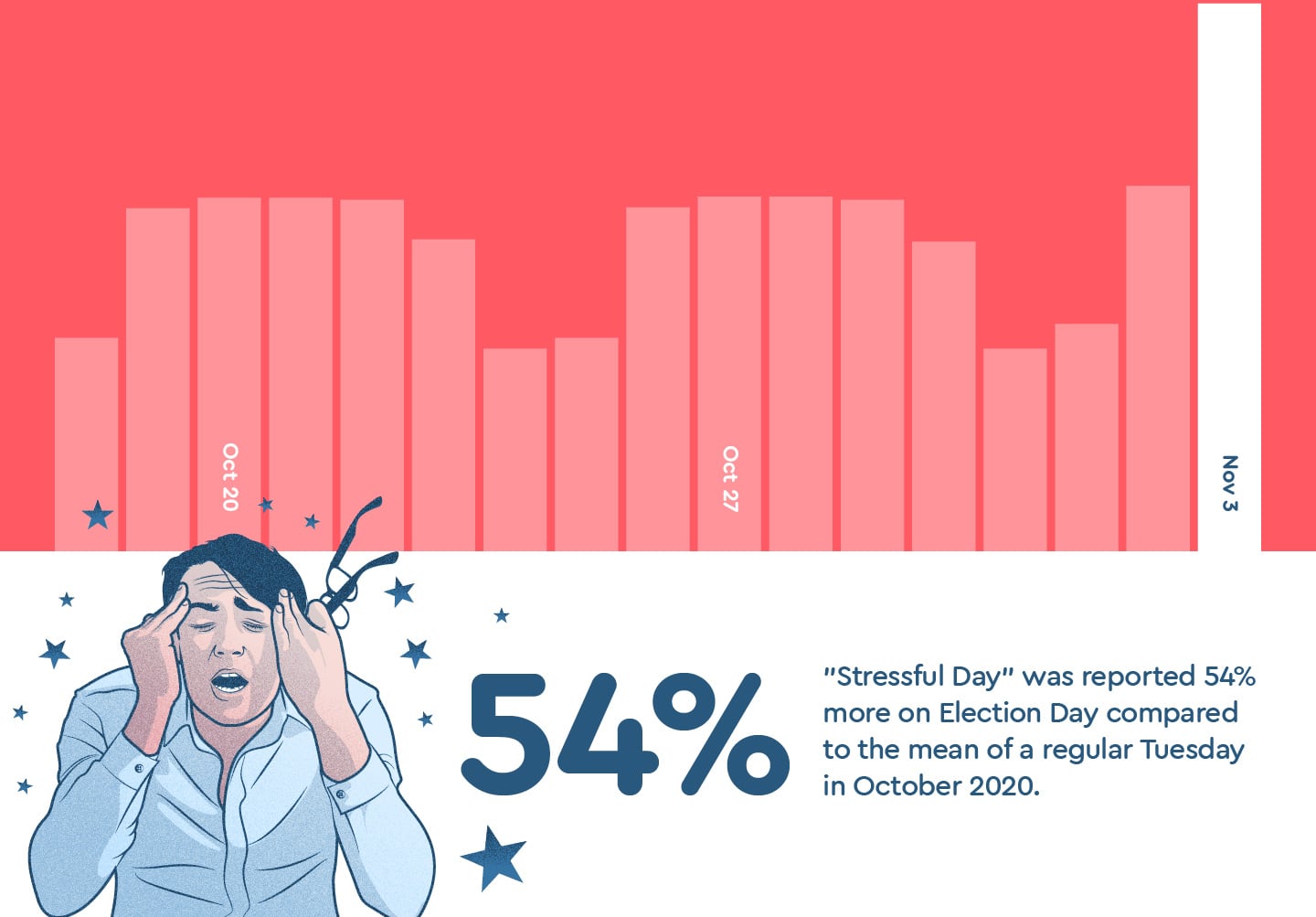
How did Americans sleep on election night?
On election night 2016, Americans stayed up later than they did in 2020. (Similarly, the average bedtime on non-election nights was later in 2016 than in 2020.) This year, as Americans tuned into the news on November 3rd to watch election results come in, there was no expectation that a winner would be called that evening, the following day, or, most likely until many days later.
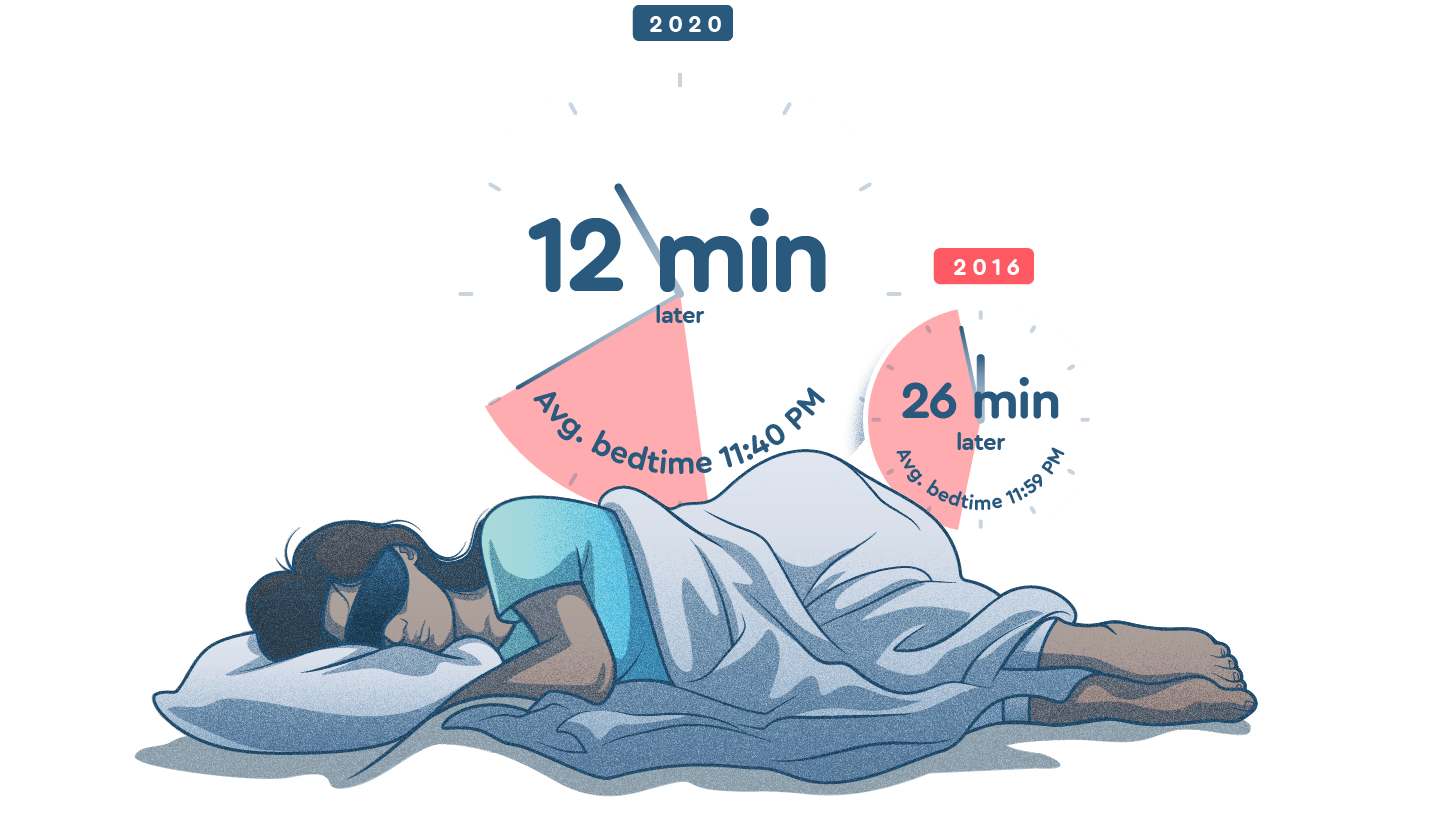
Sleep by state on election night 2020
Average sleep duration (based on 2020 election night data):
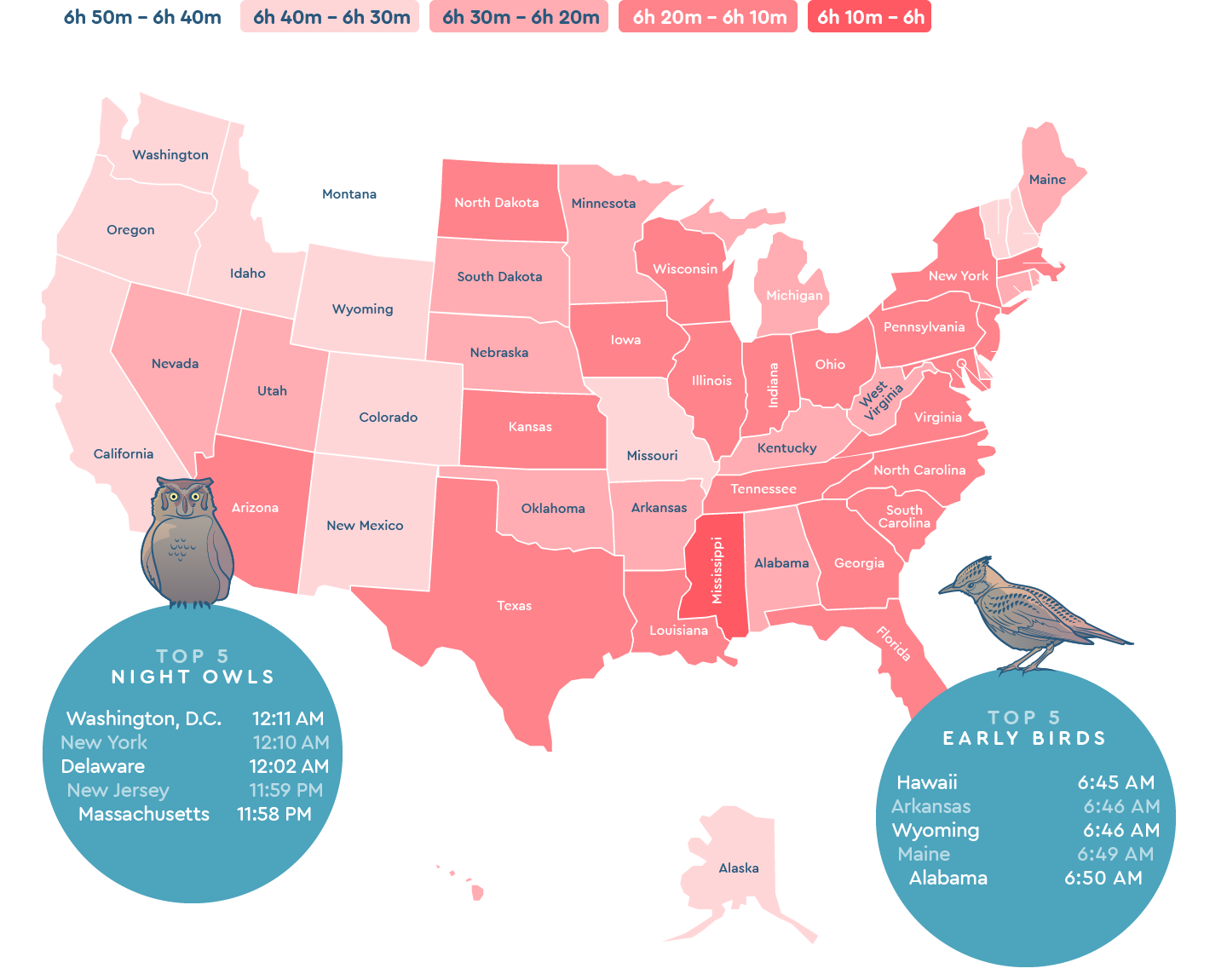
| State | AVG. sleep duration | AVG. bedtime |
|---|---|---|
| Alabama | 6:28 | 11:24 |
| Alaska | 6:37 | 11:15 |
| Arizona | 6:16 | 11:22 |
| Arkansas | 6:27 | 11:36 |
| California | 6:30 | 11:35 |
| Colorado | 6:34 | 11:18 |
| Connecticut | 6:21 | 11:51 |
| Delaware | 6:25 | 12:02 |
| Florida | 6:13 | 11:43 |
| Georgia | 6:14 | 11:47 |
| Hawaii | 6:22 | 11:07 |
| Idaho | 6:38 | 11:18 |
| Illinois | 6:17 | 11:45 |
| Indiana | 6:15 | 11:40 |
| Iowa | 6:15 | 11:34 |
| Kansas | 6:17 | 11:34 |
| Kentucky | 6:20 | 11:46 |
| Louisiana | 6:15 | 11:35 |
| Maine | 6:27 | 11:29 |
| Maryland | 6:15 | 11:54 |
| Massachusetts | 6:17 | 11:58 |
| Michigan | 6:22 | 11:55 |
| Minnesota | 6:27 | 11:33 |
| Mississippi | 6:05 | 11:23 |
| Missouri | 6:30 | 11:29 |
| Montana | 6:44 | 11:19 |
| Nebraska | 6:23 | 11:23 |
| Nevada | 6:20 | 11:19 |
| New Hampshire | 6:30 | 11:42 |
| New Jersey | 6:12 | 11:59 |
| New Mexico | 6:30 | 11:22 |
| New York | 6:15 | 12:10 |
| North Carolina | 6:19 | 11:46 |
| North Dakota | 6:18 | 11:32 |
| Ohio | 6:18 | 11:47 |
| Oklahoma | 6:20 | 11:33 |
| Oregon | 6:34 | 11:25 |
| Pennsylvania | 6:18 | 11:44 |
| Rhode Island | 6:23 | 11:39 |
| South Carolina | 6:17 | 11:31 |
| South Dakota | 6:26 | 11:09 |
| Tennessee | 6:14 | 11:35 |
| Texas | 6:17 | 11:38 |
| Utah | 6:23 | 11:37 |
| Vermont | 6:33 | 11:35 |
| Virginia | 6:13 | 11:51 |
| Washington | 6:34 | 11:25 |
| Washington, D.C | 6:11 | 12:11 |
| West Virginia | 6:24 | 11:38 |
| Wisconsin | 6:12 | 11:29 |
| Wyoming | 6:36 | 11:01 |
Which age groups were impacted most?
Every age group stayed up later on election night than they normally do, but people aged 35-44 presented the biggest overall shift in bedtime.
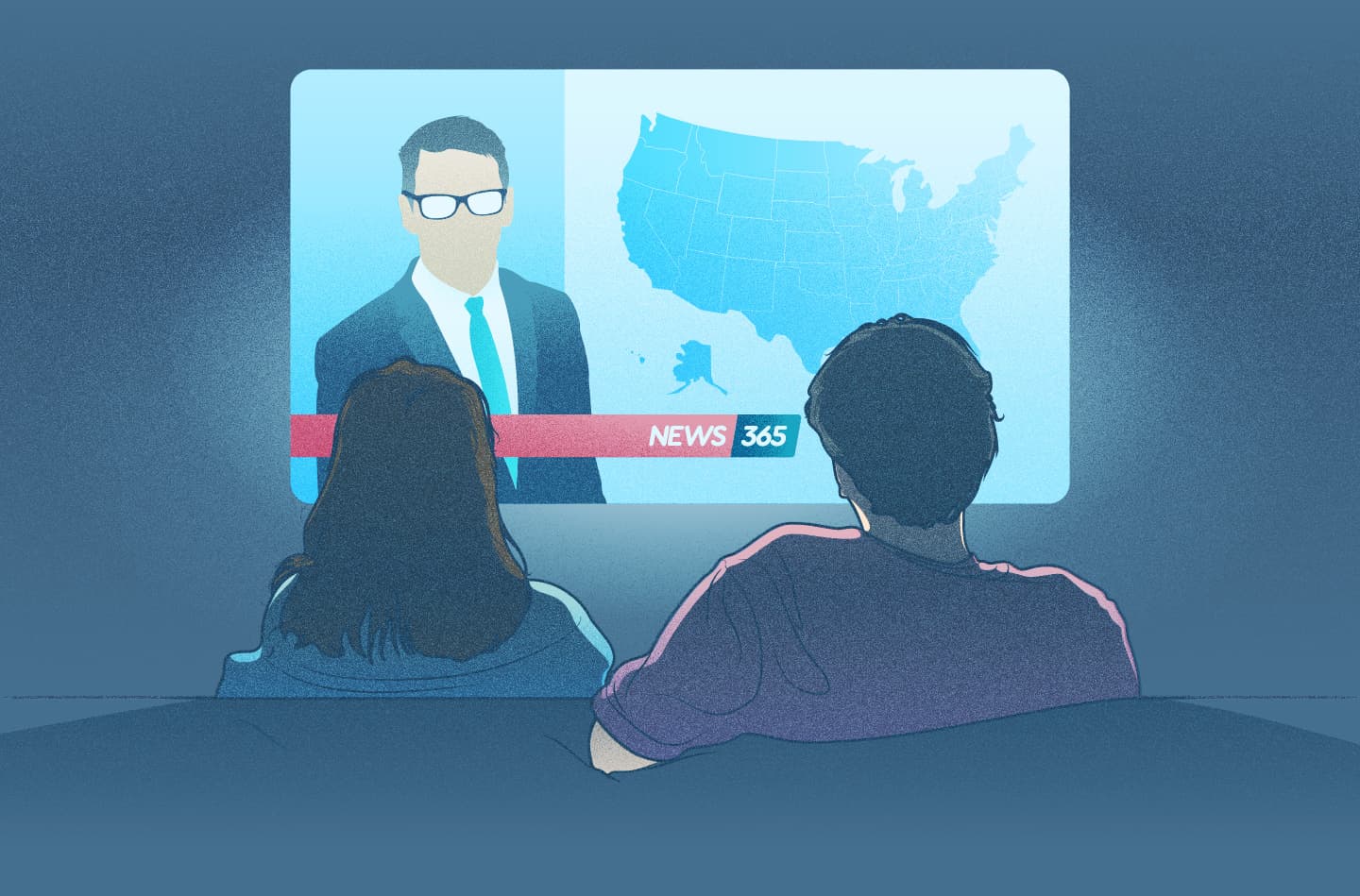
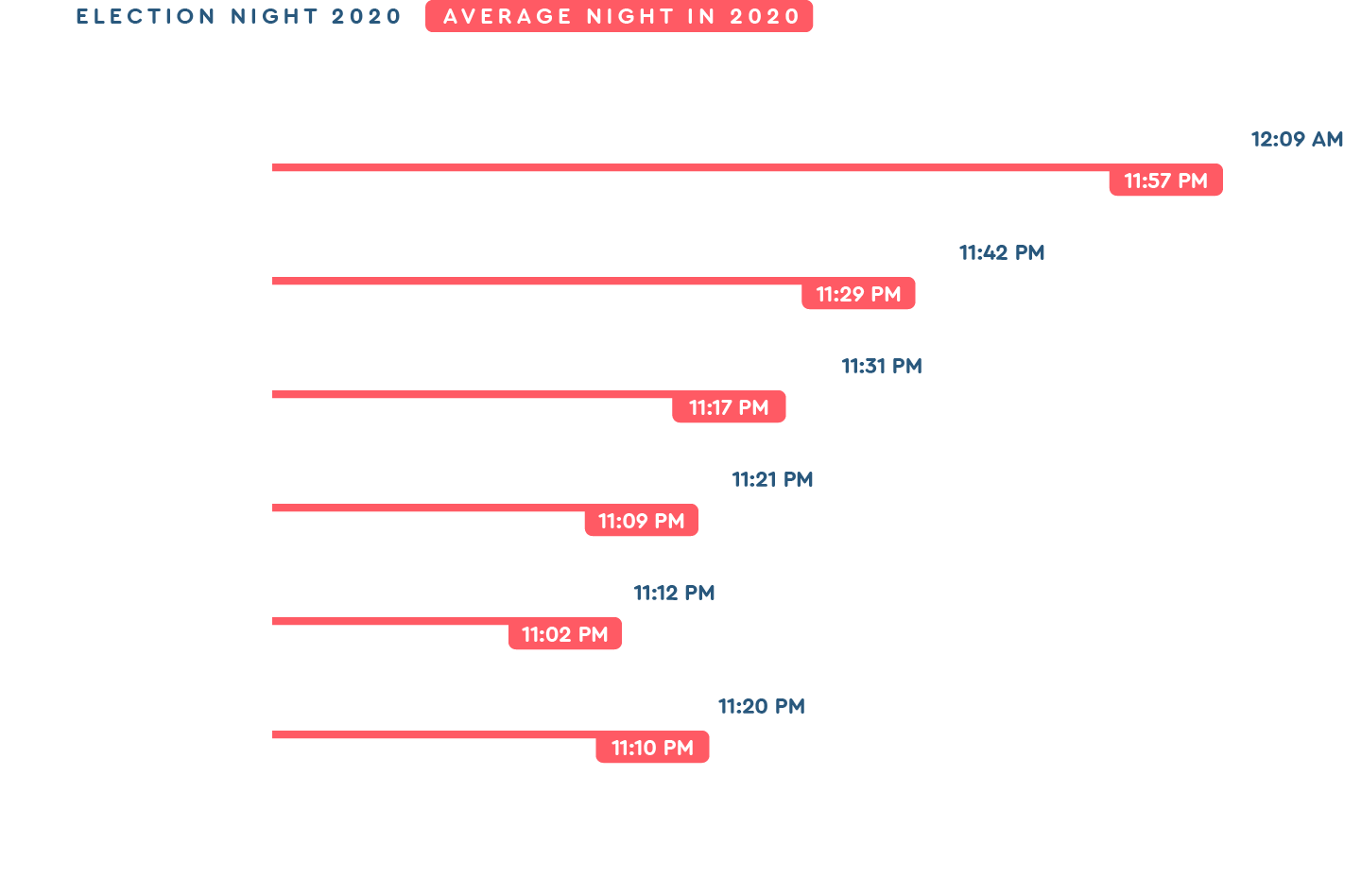
Conclusion
Presidential elections in America can be super-charged times of heightened emotions and stress. A democracy calls on all citizens to vote and engage in the political process. And Americans care about the results. On election night, they generally stay up later and wake earlier the next morning.
The 2020 election was unprecedented in many ways. By raw voter turnout, more Americans voted in 2020 than any other election in history. Whether your candidate is victorious or not, whether you live in a blue, red or purple state, whether you’re young or old, election night disrupts America’s sleep.
Methodology
This report includes data from Sleep Cycle users in the U.S. who voluntarily and anonymously shared their sleep data. It analyzes sleep session data from the last two presidential election nights, as well as a comparison of general day data, and in-app survey results gathered during the following time periods:
2020 Election
- 108,080 sleep sessions during the period of November 3-4, 2020
- 198,447 users participated in an in-app survey on November 4, 2020
- General day data from the four Tuesdays prior to election night in 2020, totaling 472,178 sleep sessions
2016 Election
- 127,077 sleep sessions during the period of November 7-8, 2016
- General day data from the four Tuesdays prior to election night in 2016, totaling 541,478 sleep sessions
| Download report as PDF | Download images |